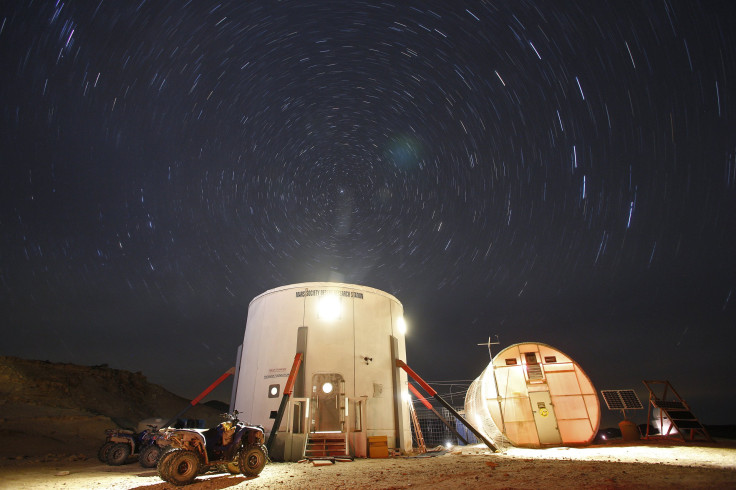Mars Society Begins First Phase Of 160-Day Mars Simulation In Utah Desert

The first half of a 160-day "Mars 160" mission, involving seven people from six different countries, kicked off in Utah on Saturday. The simulated mission — comprised of two 80-day phases, one each in a Utah desert and the Canadian Arctic — aims to advance humanity’s knowledge of how to explore the surface of Mars.
"During the course of two 12-week missions, the crew will conduct a sustained program of geological, paleontological and micro-biological field exploration while operating under many of the same constraints that human explorers on the Red Planet would face," Mars Society — the nonprofit carrying out the mission — said in a statement released earlier this month. "The team will also carry out Mars-relevant engineering research, testing biomedical tele-science, spacesuit technologies, EVA traverse strategies, astronaut cross-training in the field and habitat technologies."
Multi-national Mars 160 crew standing outside of Mars Desert Research Station in Utah (pre-sim).#Mars160 #MDRS #TheMarsSociety pic.twitter.com/TJxf31MFxm
— The Mars Society (@TheMarsSociety) September 25, 2016
According to Space.com, during the 80-day mission that began at the Mars Society-operated Mars Desert Research Station in Utah Saturday, the team members will carry out several "Mars walks" and conduct microbiology, geology and paleontology research.
"What we're doing is not an isolation experiment," Mars Society President Robert Zubrin told Space.com. "I don't think a Mars mission is about isolation; a Mars mission is not about sending people to Mars to do nothing and watch them get bored. A Mars mission is about sending people to Mars and working them hard in an aggressive program of field exploration."
The same team will, in the summer of 2017, head to northern Canada for the second phase of the mission.
"By conducting the Mars 160 mission in the form of twin studies with the same crew operating in the Arctic and the desert, the program will provide important information as to how well Mars analog missions held in the desert can serve in place of far more expensive Mars surface simulations carried out in the Arctic, and to what extent conclusions drawn from desert-based research need to be adjusted to reflect that which would likely be obtained under more stressful Arctic field conditions," Mars Society said in the statement.
© Copyright IBTimes 2024. All rights reserved.






















